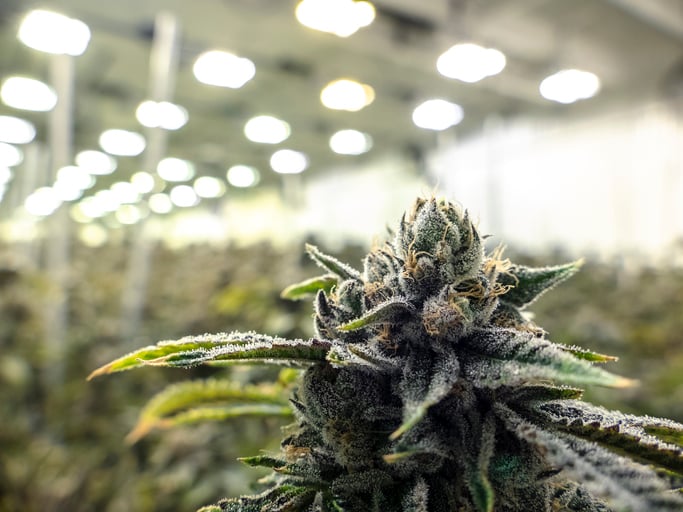The legalization of recreational use of marijuana in Canada last year was a major milestone for the cannabis industry. It allowed pot companies to operate more freely in a market whose growth over the next few years promises to be stratospheric. But despite pot being legal in Canada, cannabis companies still have to abide by stringent regulatory guidelines in order to cultivate and sell their products.
Considering that the relevant Canadian authorities have been slow to issue retail licenses -- particularly in Ontario, the largest province by population -- it isn't surprising that the illegal marijuana market in Canada is still alive and well. The CEO of Canopy Growth (CGC +0.00%), Mark Zekulin, commented on this dynamic during the company's second-quarter earnings conference call:
We're pleased to see the recent announcement that Ontario has made a commitment to move toward an open allocation of retail licenses, where the number of stores will only be limited by market demand. ... Until this happens, the cannabis sector cannot reach its full sales potential and cannot convert consumers from the illicit market into the legal market.
One company has been taking a novel approach to tackling the black market for marijuana in Canada: HEXO (HEXO +0.00%).

Image Source: Getty Images.
HEXO's timely announcement
Last month, HEXO launched its cannabis value brand, Original Stash, in the province of Quebec. The first product the company offered via this brand was called OS.210, a dried flower blend with as much as 18% tetrahydrocannabinol (THC) concentration.
HEXO made it clear that this new venture was a direct attack on the marijuana black market. HEXO cited some interesting statistics regarding the prevalence of illicit markets in Canada. For instance, about 40% of Canadians continue to purchase cannabis from illegal sources, and a notable share (about 33%) of them are not even aware they are engaging in illegal transactions.
The solution to this problem according to HEXO is to offer cannabis products with low prices that match those found in illegal markets and to educate the public about the dangers (both legal and health-related) of purchasing cannabis products from illegal channels. After launching its new venture in Quebec, HEXO recently did the same in the largest Canadian market, Ontario, and the announcement on Black Friday was definitely no accident. HEXO CEO Sebastien St-Louis said:
HEXO is disrupting the black market this Black Friday. We are committed to playing a valuable role in eliminating the illicit market and in protecting public health and safety. That's why we are pleased to continue rolling out Original Stash across Canada, providing consumers with a quality product at a low price. Our experience with the launch of Original Stash in October demonstrates that there is a strong demand for this type of product.
What should investors think of this?
It is difficult to assess HEXO's latest move on the company's bottom line. First, it is unclear whether (and to what extent) the company will manage to divert traffic from illicit markets and onto its new value brand. Further, suppose the best-case scenario happens and HEXO manages to attract a significant portion of consumers who would have otherwise purchased cannabis products from the black market. While we know that the company will be selling its second product from its value brand in Ontario for 140 Canadian dollars for 28 grams of "quality dried cannabis flower" (the first product released in Quebec had a retail price of CA$4.49 per gram), what we don't know is how much went into getting these products to the consumers.
Even if HEXO manages to empty its inventory, it might not matter all that much if these products offer relatively low margins. Perhaps the company hopes to build stronger brand awareness -- and a strong following -- by launching this value brand. If that's the endgame, investors will have to wait and see whether this tactic is paying off. In short, investors should keep observing how things develop and pay especially close attention next time HEXO reports its financial results.






